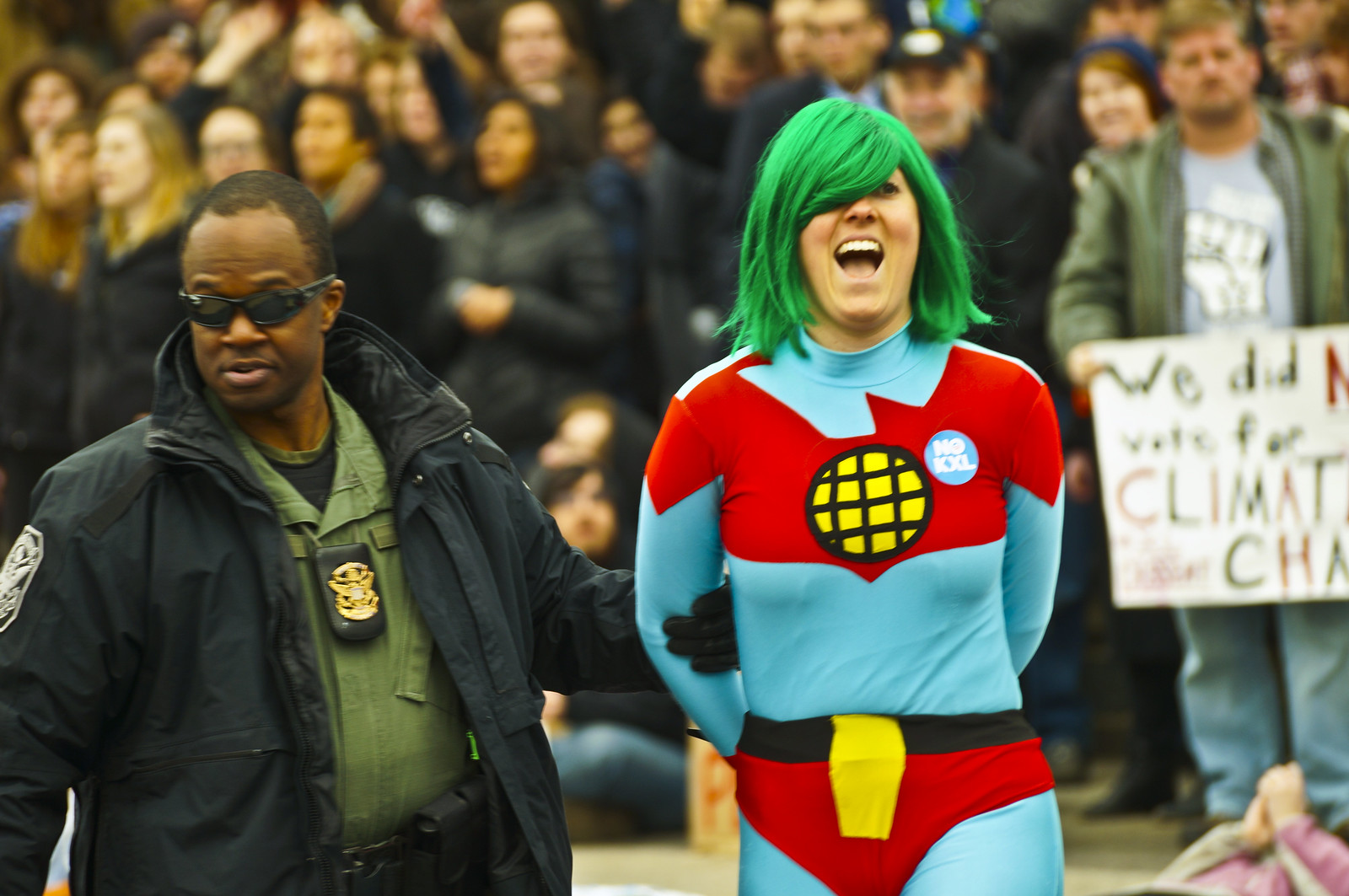It happens every time a superhero goes into hiding: In their absence, a world falls apart. What is Gotham without its Batman? Crime is rampant, the sky is ominous, and disaster looms.
Likewise, what is Earth without Captain Planet? With the writer’s strike behind us and creative projects picking back up, I hope Hollywood feels the urgency to revive what Captain Planet brought to millennials.
Though many TV shows from my childhood didn’t age well, “Captain Planet” was well ahead of its time. The animated series and its sequel, which aired between 1990 and 1996, depicted a superhero protector of Earth and Gaia, a woman who portrays the spirit of the Earth. Along with the Planeteers — a group of globally diverse teenagers from five different continents — they defended the world from pollution, criminals, and natural disasters.
The show inspired a generation of climate advocates and champions like me who believed that we could defeat pollution. The original message and sense of planetary urgency still ring true to the eco-conscious in my generation. Mention his name to us and you’re likely to hear a unison response: “He’s our hero!”
But since the “disappearance” of Captain Planet, the Earth’s climate has gotten dangerously hotter. Wildfires across the globe are out of control, oceans are boiling, and weather disasters are devastating the planet. But in the years that broke temperature records for the hottest ever recorded, our hero is nowhere to be seen. I could write updated scripts. We all can because we’re living it.
In Captain Planet’s absence, both fictional and nonfictional narratives are often dominated by doomsday undertones with plots that frequently take place in a dystopian sci-fi version of a scorched planet. The recent “Extrapolations,” on Apple TV+, is just one recent example.
This genre of programming fails to create the world we’d like to see. That contributes to rising psychological distress over climate change — and a widespread attitude that it’s too late to solve the problem.
We can and should write a better ending.
Entertainment can be a powerful advocacy tool for climate and behavior change and shifting public opinion. If we write the stories that we want to live, films and television can become a blueprint. We saw this in the term “designated driver,” which was strategically placed on prime-time television in an effort to reduce alcohol-related traffic collisions, a campaign led by the Harvard Center for Health Communication. We saw it again with the “Will and Grace effect,” which helped reduce homophobia and familiarize audiences with LGBT issues through the introduction of the first gay leading characters on a hit sitcom. And we saw it once more this year, in a collective smash of the patriarchy through the new Barbie movie.
For climate change, we need a story that doesn’t end in the sixth mass extinction. If we can see what a climate-safe world looks like, we might believe in it, and we might create more and stronger solutions that accelerate progress toward a net zero world.
A reboot of Captain Planet could inspire a new wave of problem-solvers and optimists that this crisis needs.
If Barbie and the Ninja Turtles can fight patriarchy and inclusion, Hollywood can surely develop a marketing campaign for the planet led by Captain Planet.
It’s encouraging to see new studios like Yellow Dot Media and organizations like Good Energy sprout up to help better position climate realities in Hollywood. And certainly, nature documentaries like Barack Obama’s National Parks series are helping me fall asleep at night when the climate anxiety really kicks in.
But we need more. In the cartoon, it took all the children’s powers — Earth, Fire, Wind, Water, and Heart — to summon Captain Planet. Similarly, let our powers combine to create the generation of heroes we (and future generations) need.
Rwaida Gharib is a Ph.D. student at the Stanford Doerr School of Sustainability and a Public Voices Fellow on the Climate Crisis with the Op-Ed Project and Yale Program on Climate Change Communication.
Source link


